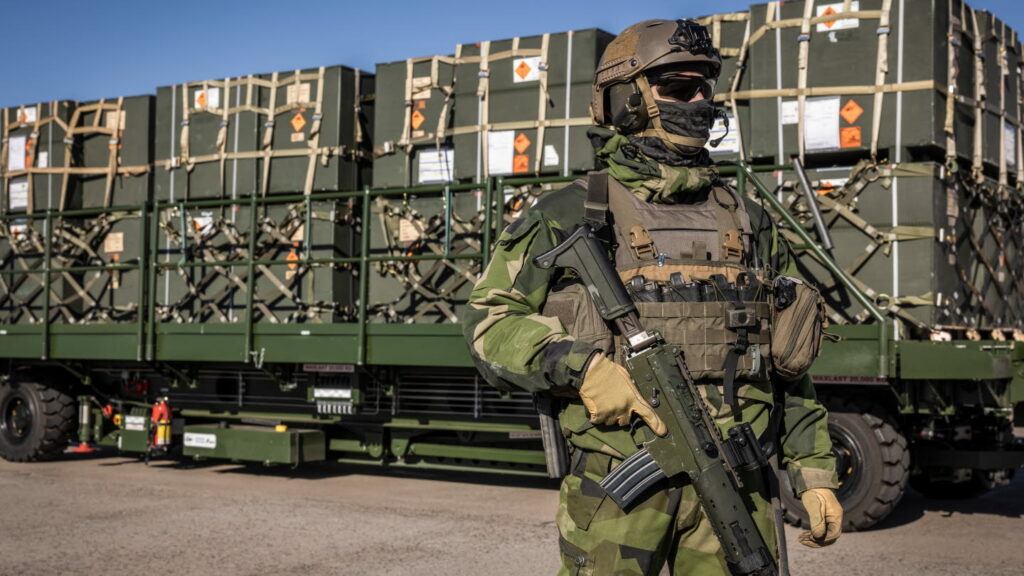An EU programme on defence research was only partially useful in preparing the EU for ramping up its defense spending and procurement, according to a new audit report published on Wednesday by the European Court of Auditors (ECA).
The EU still lacks a long-term strategy for defense research and spending. In its first ever performance audit of EU defense spending, ECA checked the Preparatory Action on Defence Research (PADR) with a budget of €90 million.
The Commission launched the PADR in 2017 as a three-year programme to help improve competitiveness and innovation in the European defence industry.
PADR was supposed to pave the way for the European Defence Fund (EDF) with a budget of ca €8 billion for the 2021-2027 period. But when the EDF was established in 2021, most PADR projects were still ongoing.
The results of completed projects were therefore not available in time to prepare the launch of the EDF, according to the EU auditors.
Overall, while some lessons were learned, the value of the PADR as a testbed for increasing EU defence spending was reduced due to the time constraints and limited results. Among others, staff numbers needed to manage defence projects was higher than for other projects.
Delays occurred frequently owing to the time needed to finalise grant agreements, in part because of security requirements that were sometimes considered excessive. PADR was implemented through competitive annual calls for proposals, based on annual work programmes, while a multiannual perspective would have been needed.
”Although the PADR provided the EU with an opportunity to test different options in funding defence research, delays and the paucity of results limited the lessons learnt for its bigger successor – the EDF,” said Viorel Ştefan, a former deputy prime-minister of Romania and the ECA member responsible for the report, at a virtual press conference.
“The Commission should work with member states to develop a long-term strategy, which is essential for the future of the EDF as the EU’s main defence fund,” he added, referring to the most important audit recommendation in the report. All recommendations in the report were accepted by the Commission.
Ammunition to Ukraine
The ECA auditors described EUs defense spending as a hotly debated topic in view of the on-going war in Ukraine but the audit, which was launched before the outbreak of the war, does not include the European Defence Agency (EDA) in its scope.
The agency, which was established already in 2004, played a crucial role in the implementation of the PARD projects. Following an agreement with the European Commission, it was responsible for evaluating defence research proposals, making award decisions, and negotiating and signing grant agreements for the projects selected.
Asked by The Brussels Times about EDA’s role, ECA member Viorel Ştefan replied that ECA had no mandate to audit EDA and that without an audit of the agency it cannot assess its performance in current events.
EDA plays a key role in the supply of much needed artillery ammunition to Ukraine in line with a recent EU decision. According to the three-track decision, EU member states will supply Ukraine shells from their existing stockpiles and EDA shall launch tenders to purchase shells to replenish them. In the third track, in the mid-term perspective, EDA shall ramp up EU’s defense industry.
However, the common procurement of shells on behalf of the member states is still in the start of the process and EDA is not in a position to specify the lead time to the delivery of the shells to Ukraine, according to a FAQ document dated 4 April.
In the document, EDA states that common procurement is the best option to achieve cost reduction from economies of scale, while allowing member states to purchase ammunition according to their national needs and supporting Ukraine.
Considering the urgent need to procure 155mm artillery ammunition for Ukraine, EDA has identified a fast-track solution which entails a negotiated procedure with European industry without tendering, based on extreme urgency.
According to the intelligence assessments in the recent Pentagon leaks, whose authenticity have been confirmed by the US authorities, Ukraine risks running out of shells and other ammunition very soon. In an interview on Monday, a Belgian military export expressed the same fears.
"Western support is only increasing marginally," professor Alexander Mattelaer said. "Ukraine is still at risk of ammunition and weapons shortages.”
He stressed that the critical vulnerability now is anti-aircraft artillery. “If gaps are created there, it can have a huge impact on the spring offensive. The Russian Air Force, hitherto little used, could then suddenly make a much larger entry, with all the ensuing consequences."
His comments followed similar remarks made by Ukrainian Deputy Foreign Minister Andrij Melnyk, who claimed that "Ukraine needs 10 times more" military support if the country is to win the war by the end of this year.
M. Apelblat
The Brussels Times

